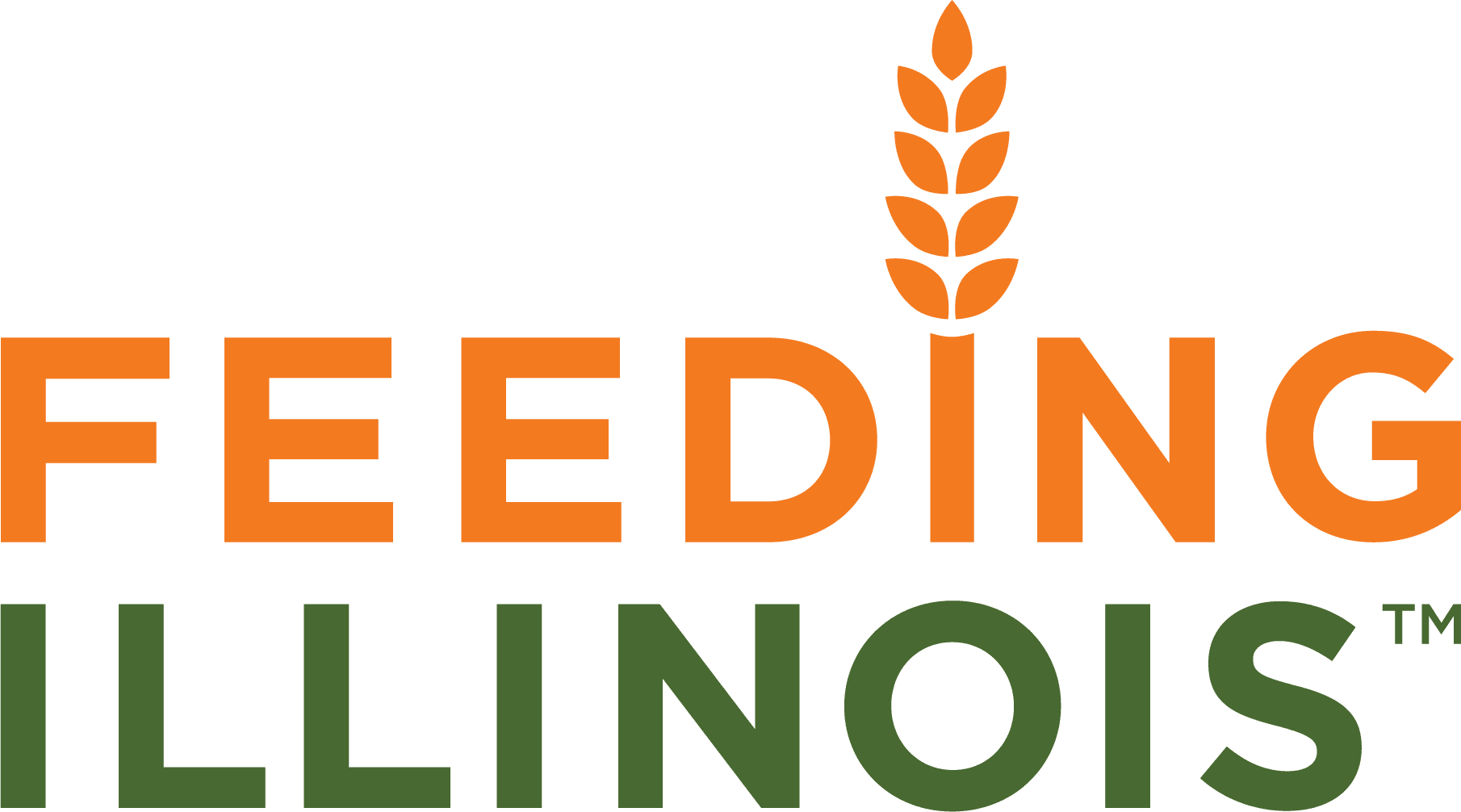February, 2022
Feeding Illinois partnered with Rendleman Orchards during the 2021 growing season to ensure no fruit went to waste! Through the USDA’s Farm to Food Bank grant, Feeding Illinois was able to pay Rendleman Orchards its picking and pack-out costs (PPO) which represent the farm’s costs to harvest and package the product and enabled the donation of the peaches, nectarines, and apples. The fruit was either off-spec, meaning it did not qualify to be sold in typical primary markets due to size/weight/blemishes, or surplus, meaning that the farmer did not have a buyer or market outlet for the fruit. Rather than the fruit going to waste, Feeding Illinois helped Rendleman Orchards recoup their costs and provide fresh local nutritious fruit to Illinois neighbors in need.
How did the process work?
In spring of 2021, Feeding Illinois and the Illinois Sustainable Technology Center (ISTC) visited Rendleman Orchards to tour the farm, learn about their operations, and discuss a potential partnership. Rendleman Orchards started by providing 48 cases of peaches to Tri-State Food Bank’s Vienna, IL hub. After a successful start to the program, St. Louis Area foodbank and Northern Illinois Food Bank started receiving cases of peaches and nectarines as well. As demand grew from the food banks, Rendleman Orchards aggregated peaches and nectarines from neighboring Flamm Orchards.
Each week Rendleman Orchards would reach out to a specific contact at each food bank with quantities available. Interested food banks would place an order with Rendleman Orchards by the end of the week and either pick-up or receive a delivery the following Tuesday. Tri-State Food Bank and Northern Illinois Food Bank orders were delivered, while St. Louis Area foodbank picked up directly from the farm. All invoices were sent to Feeding Illinois and were paid upon confirmation of receipt from the food banks.
By the end of the 2021 growing season, Feeding Illinois reimbursed Rendleman Orchards $302,836 to cover the PPO costs for the donation of 620,425 pounds of Illinois-grown fresh fruits: 7,458 cases (372,900 lbs) of peaches; 539 cases (26,950 lbs) of nectarines; and a combined 220,575 pounds of bagged and bulk apples. An additional $10,420 was paid for associated deliveries to the four recipient food banks.
“The Farmer to Food Bank Pilot was a HUGE Success. Every single person we worked with went above and beyond to make this a successful pilot year. It could not have come at a better time with the overabundance of peaches nationwide. It prevents a lot of peach dumping. It recouped farmers’ costs while providing fresh and healthy food for those in need. As farmers we felt completely supported by Illinois Farm Bureau, our politicians, our state university, and our food bank partners. I truly feel this could be a shining star program for our state.”
– Michelle Sirles, Rendleman Orchards
How will we improve the process next year?
During year one of this pilot project, we identified three key findings that we will take into next year’s efforts.
1. The need to develop a standardized process for reporting and invoicing. Currently each food bank, pantry, and farm have their own set of processes. In order to ensure accurate tracking and timely payments a more standardized process is needed.
2. Be flexible with logistics. The logistics of pick-up and delivery do not need to look the same for every food bank and every transaction. We found that what worked for one food bank/farmer relationship did not necessarily work for the others. Being flexible with the process allows for increased participation.
3. Timely communication is essential. Timely communication from both the farmer and food banks ensured on time delivery and pick-ups and built trust between the parties.
Interested in learning more about the Farm to Food Bank Project and how your farm can get involved? Visit: www.feedingillinois.org/farmers/
The Farm to Food Bank Project is an initiative under the Farmers Feeding Illinois umbrella at Feeding Illinois. Project partners include the Illinois Sustainable Technology Center at the University of Illinois, the Illinois Farm Bureau, the Illinois Specialty Growers Association, the Illinois Farmers Market Association, and University of Illinois Extension.

